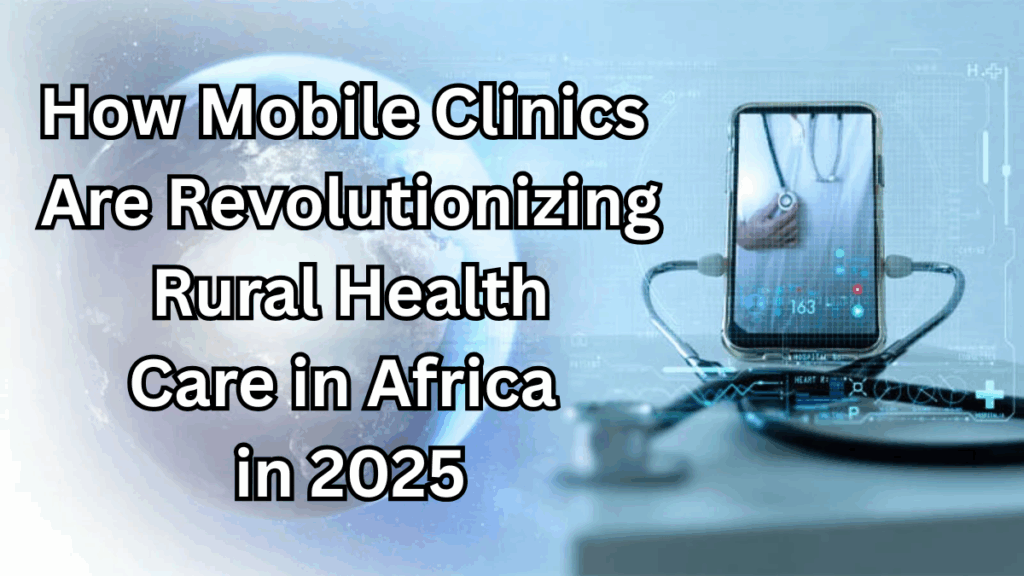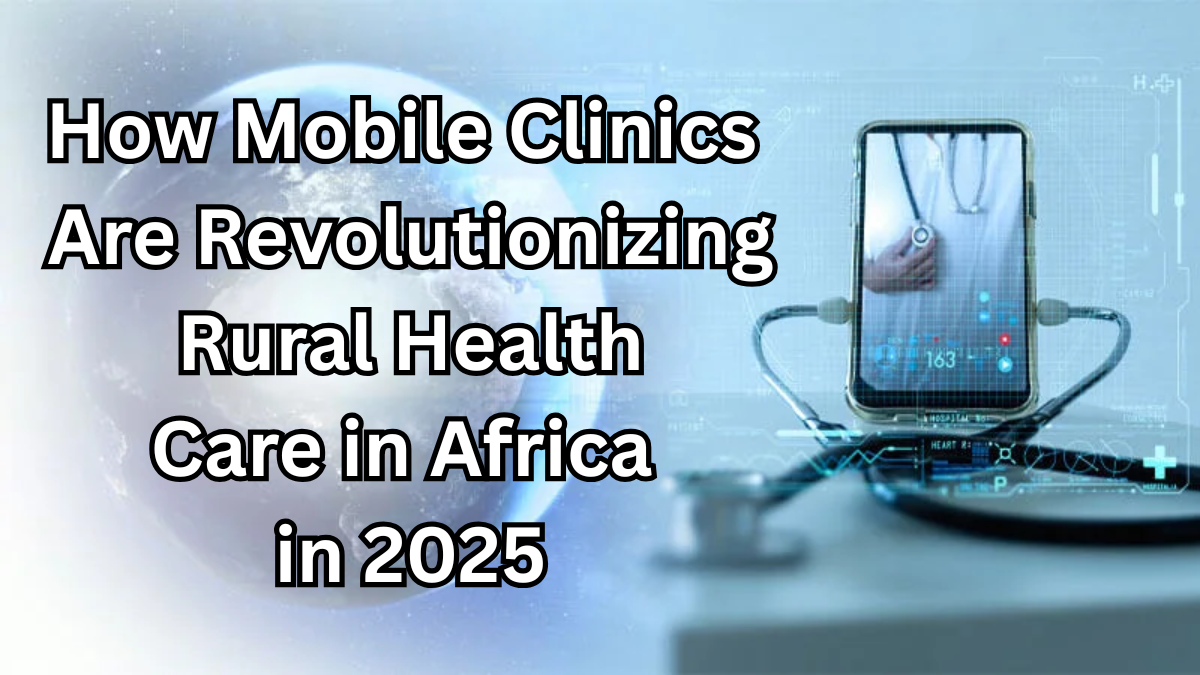Access to quality healthcare has always been a challenge for rural communities across Africa. Long distances, lack of infrastructure, and limited medical facilities often make it difficult for people in these regions to get timely treatment. But in 2025, a new wave of Rural Health Programs Africa is transforming the picture. At the heart of these changes are Mobile Clinics and Outreach initiatives, bringing essential health services directly to the people who need them most.

Why Mobile Clinics Are Game-Changers
Mobile clinics are not just vehicles with medical equipment – they are lifelines for rural populations. By bringing healthcare to the doorsteps of remote communities, they are:
-
Bridging the gap between rural areas and hospitals
-
Providing on-the-spot consultations for common illnesses
-
Offering preventive care such as vaccinations, screenings, and maternal health support
-
Reducing travel time and costs for patients
These efforts are making rural health care more accessible, affordable, and effective than ever before.
Key Features of Mobile Clinics in 2025
| Feature | Impact |
|---|---|
| Advanced diagnostic tools | Quick detection of diseases |
| Telemedicine facilities | Virtual consultations with specialists |
| Onboard pharmacies | Immediate access to essential medicines |
| Trained medical teams | Personalized care for patients |
How Rural Health Programs in Africa Are Evolving
In 2025, Rural Health Programs Africa have expanded beyond just treatment to include awareness and prevention. Mobile clinics now conduct health education sessions, teaching communities about hygiene, nutrition, and preventive care. Governments and NGOs are collaborating to ensure these programs are sustainable, with:
-
Partnerships between local governments and global health organizations
-
Regular health camps in rural districts
-
Integration of mobile data systems for patient record-keeping and follow-up
Stories That Inspire
Take the case of a small village in Uganda where a mobile clinic visits once a month. For Sarah, a mother of three, this means she no longer has to travel 40 kilometers for her child’s vaccinations. “The clinic comes to us now,” she says, “and that has changed our lives.”
Such stories are becoming common across Africa as Mobile Clinics and Outreach bring medical care within reach for millions.
Challenges Ahead
While mobile clinics are revolutionary, challenges remain:
-
Funding gaps for long-term operations
-
Shortage of skilled medical personnel willing to work in remote areas
-
Poor road infrastructure slowing down outreach
Despite these obstacles, the progress in 2025 gives hope for an even healthier future for rural Africa.
FAQs
1. What services do mobile clinics provide in rural Africa?
Mobile clinics offer primary healthcare services, including disease diagnosis, vaccinations, maternal care, health education, and distribution of essential medicines.
2. How often do mobile clinics visit rural areas?
Frequency varies by region, but many clinics operate on a rotational schedule, visiting communities weekly or monthly.
3. Who funds Rural Health Programs Africa?
Funding comes from a mix of sources, including government budgets, international NGOs, private donors, and partnerships with global health organizations.
4. How do mobile clinics use technology in 2025?
They use telemedicine for virtual consultations, mobile data systems for patient records, and portable diagnostic devices for quick and accurate health assessments.
Click here to learn more
